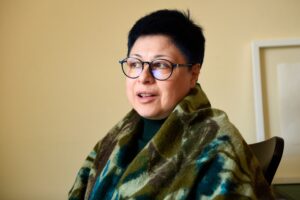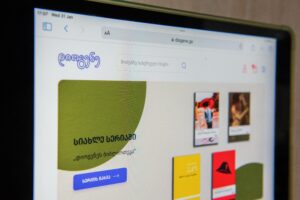
A woman publisher in a male-dominated industry – the path to a big dream
“The publisher’s profession is like being a conductor. You connect creative people with each other and create something new. This was what fascinated me in this business. I thought that I was justifying my purpose in the world,” says Tamar Lebanidze, the founder of the Diogene Publishing House, recalling the days, 29 years ago, when she started her business.
If you glance at your bookshelves, the chances are you’ll likely find at least one book published by Diogene. However, the beginnings of this publishing house were not marked by immediate success.
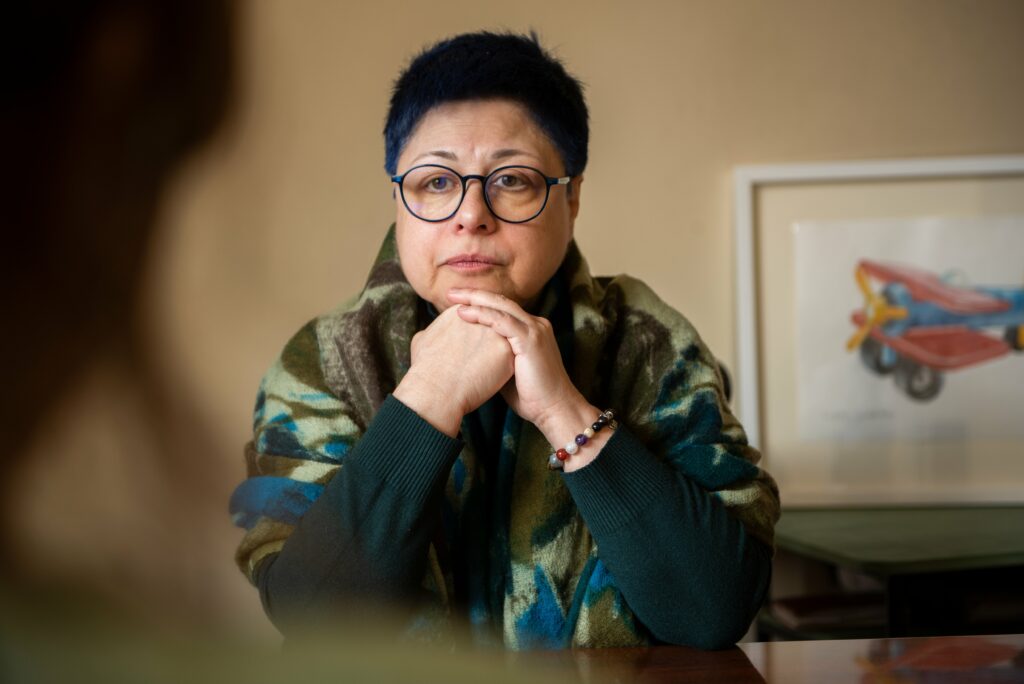
Diogene was founded by Tamar Lebanidze together with three friends in 1995, but in the end, she was the only one to remain in the publishing house. Today, she also serves as the chairperson of the Georgian Publishers and Booksellers Association.
First steps as a publisher
Tamar says that like her friends, she too could have given up on the common business and gone her own way, but she decided to stay. She says that Diogene had a special mission and she was committed to the business.
“When our paths parted, I felt as though I was a 16-year-old mother. Realising that I was solely responsible for Diogene served as an additional motivation for me,” says Tamar.
Even though the responsibility for the publishing house was completely assigned to Tamar, she did not stop thinking about the development of the literary field of Georgia and was even able to do much more – along with the success of Diogene, she also set up the Publishers and Booksellers Association in 1996. The organisation still plays an important role in the development of Georgian culture, organising book festivals, commemorating April 23 as International Book Day, facilitating Georgia’s presence in global literary events, and fostering greater social interest in literature.
Tamar’s challenges in a male-dominated business
Tamar looks back at her personal experience as a female publisher in the 1990s. The path of one of the oldest publishing houses in Georgia was not as easy as it seemed from afar. Tamar had been left alone to run the business, and she was not considered equal by the men around her. Men were considered worthy of more trust and respect, and women were often not even listened to. Tamar has many stories to tell.
“A bookseller once remarked to me about one male publisher, ‘He should be called a man, and you – a woman?’ This was one of the comical ‘compliments’ I’ve received in my life.
“Today, society is very different from the 90s when we started business. By this, I refer not only to economic or political shifts but also to the negative social attitude towards female entrepreneurs.
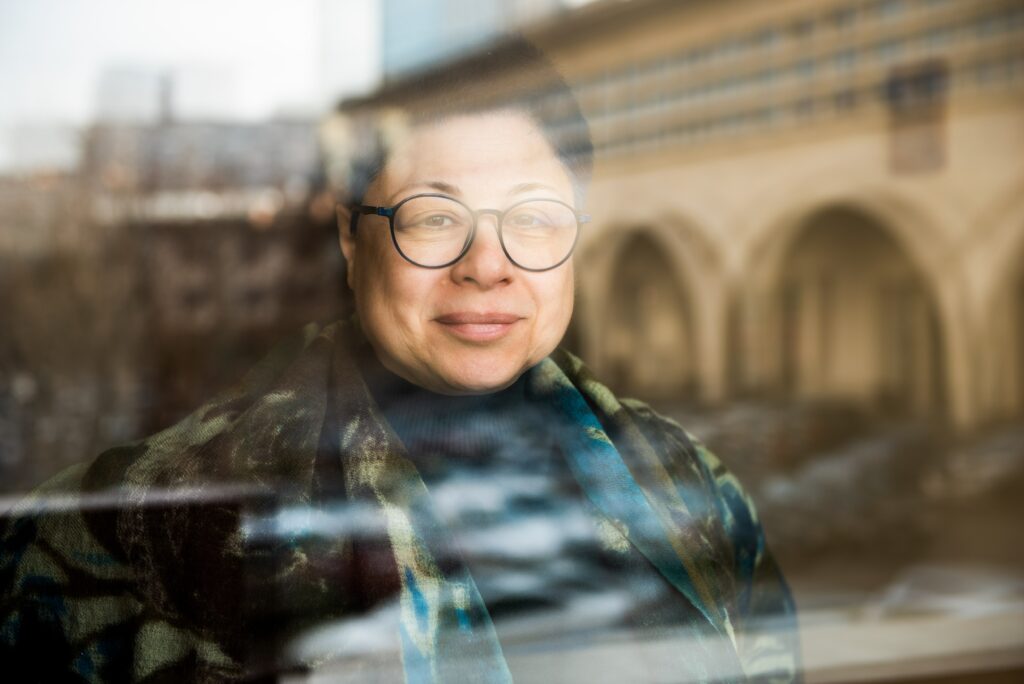
“In my case, it didn’t matter, at that time I was at least seen, but there are situations when you talk to a man with whom you plan to cooperate and you feel that he simply doesn’t see you, he ignores your existence. Now this attitude has undergone a significant shift, which makes me very happy – this transformation should encourage all aspiring female entrepreneurs,” says Lebanidze.
Tamar urges all new female entrepreneurs to grasp the challenges of being a woman in the publishing industry.
New opportunities
During COVID, problems appeared in all areas. The publishing industry was no exception – the closure of many facilities significantly reduced both the printing and sales of books.
But Tamar saw this situation as an opportunity and a way to develop online trade. Diogene joined the EU4Business programme ‘Advice for Small Businesses’ implemented by the European Bank for Reconstruction and Development (EBRD). With the programme’s help, the publishing house created their first online store.
The subsequent phase involved the development of a fully functional website, enabling readers to purchase any book from the comfort of their homes. Additionally, those interested could delve into the history of Diogene and its authors. This achievement was made possible with the support of the EBRD’s DIGITAL RE4M programme to help Georgian SMEs with digital transformation and support their recovery after the COVID-19 pandemic.
Tamar describes this stage as a transformative experience for Diogene, one that persists to this day. She also observes that during this period, there was a notable increase in interest in audiobooks, with readers becoming more actively engaged in using e-book platforms.
With the help of a website created with the support of the European Union, Diogene developed online trade and not only increased the sales of the publishing house but also created an information platform for consumers. This, in turn, helped attract readers to local bookstores and promote Diogene’s products. Through the website, instead of losing customers in a crisis situation, the publishing house attracted new readers.
“For us, this support was of huge importance, and for the European Union it was a priority to develop the publishing business in Georgia in a modern way. This experience brought a lot to both publishing house and readers.
“First of all, it made our service much more comfortable. This is not a one-time project and it continues to this day. We can discover, refine, and change many things along the way, so we are constantly in the process of change,” Tamar notes.
The beginning of success
Tamar recalls the early days of Diogene and the challenges of that time. Over its 29-year lifespan, the publishing house has overcome many obstacles and celebrated many successes. Tamar took on this difficult task just as the Soviet Union collapsed. She recalls that when the publishing house was founded, there were only a few bookstores in Tbilisi, many books were not translated, and book circulation was limited. Back then, selling 300 copies a year was deemed a remarkable accomplishment.
Reflecting on the challenges, Tamar recalls that the publishing profession simply did not exist in the Soviet Union. Thus, when she entered this field in the 1990s, it was entirely unfamiliar and novel to the public.
“I believe that the real reader, as such, is the same in every era, and their number is very small. However, compared to the 90s, the entire layer of society has changed today. At that time, there were neither the financial means to buy books, nor the cultural spaces that have since emerged.
“The section of the population that was interested in culture, attended plays, read books, and went to the museums was tiny, but today the number of these people in Georgian society has increased significantly,” the publisher remarks.
Over the years, Diogene has published thousands of books, garnering recognition for its excellent translations and original works. However, its publishing achievements extend beyond these accomplishments.
Diogene is the founder of the literary competition PenMarathon, which started 22 years ago and has since been held eight times. PenMarathon stands out not only as one of the oldest Georgian literary competitions but also for its unique format. The competition requires writers to produce a sample of artistic prose within a defined task, all while being isolated from the outside world and within a limited timeframe.
Diogene as value
Tamar intends to reopen the bookstore in a physical space in the future. Additionally, she discusses the core values of the publishing house and delves into the history behind the name Diogene.
“The most delightful aspect for me is that over time, the publishing house Diogene holds an ever closer resemblance to the renowned ancient philosopher Diogenes.
“The main thing we want Diogene to leave behind is that people feel empowered to ask questions, pursue answers, and acquire knowledge that can be leveraged for positive purposes. I believe the reader of Diogene will understand exactly what I mean,” says Tamar.
Tamar consistently strives to stay updated with the news while also attending to Diogene’s development. She reveals that she, along with Diogene’s team, has even bigger plans ahead.
Author: Anano Didebashvili
The article published in Georgian by On.ge
MOST READ
SEE ALSO

No, time is not on Russia‘s side
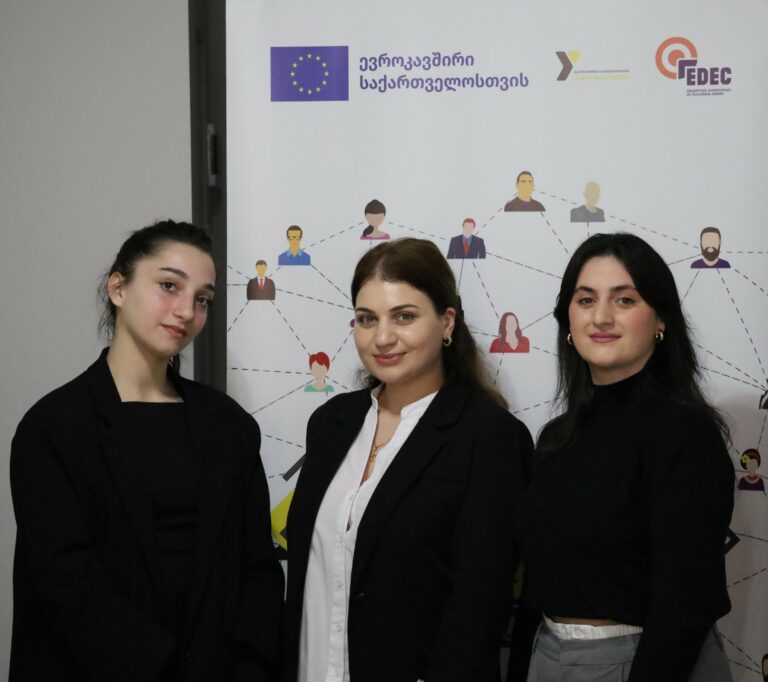
A hands-on approach to boost youth employment in Georgia
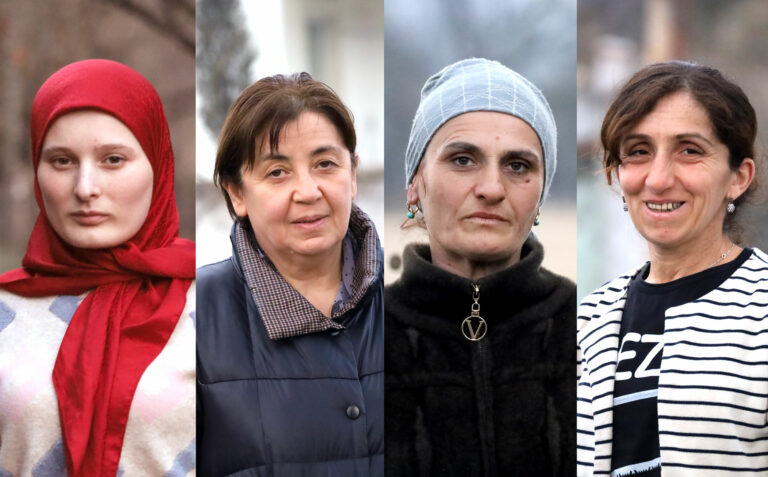
Taking health into their own hands: women’s empowerment in the remote villages of Georgia

Be one step ahead of a hacker: check simple cybersecurity tips!

Rhisoma Lab: the intercultural hub for creatives in Tbilisi
More campaign pages:
Interested in the latest news and opportunities?
This website is managed by the EU-funded Regional Communication Programme for the Eastern Neighbourhood ('EU NEIGHBOURS east’), which complements and supports the communication of the Delegations of the European Union in the Eastern partner countries, and works under the guidance of the European Commission’s Directorate-General for Neighbourhood Policy and Enlargement Negotiations, and the European External Action Service. EU NEIGHBOURS east is implemented by a GOPA PACE-led consortium. It is part of the larger Neighbourhood Communication Programme (2020-2024) for the EU's Eastern and Southern Neighbourhood, which also includes 'EU NEIGHBOURS south’ project that runs the EU Neighbours portal.

The information on this site is subject to a Disclaimer and Protection of personal data. © European Union,
